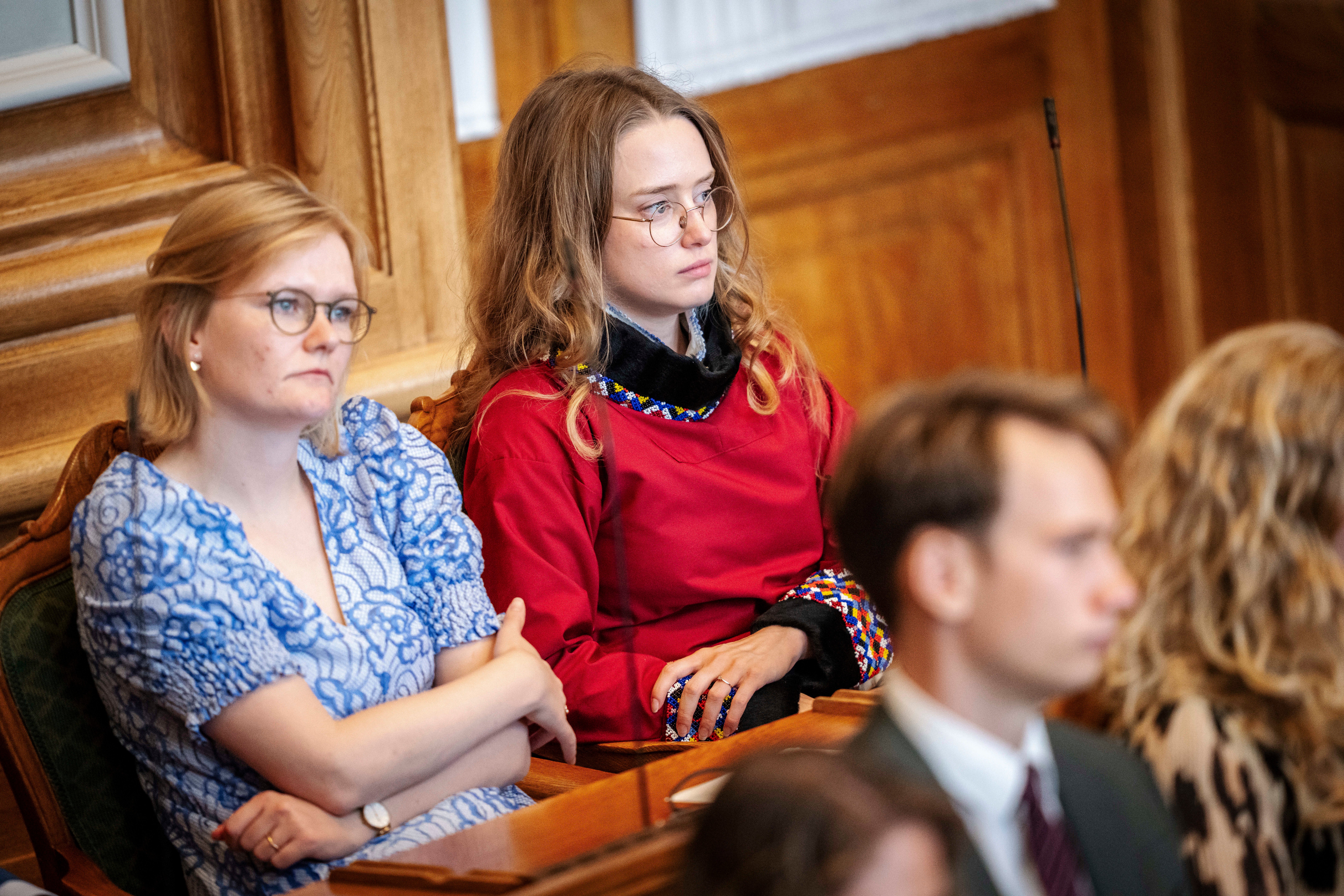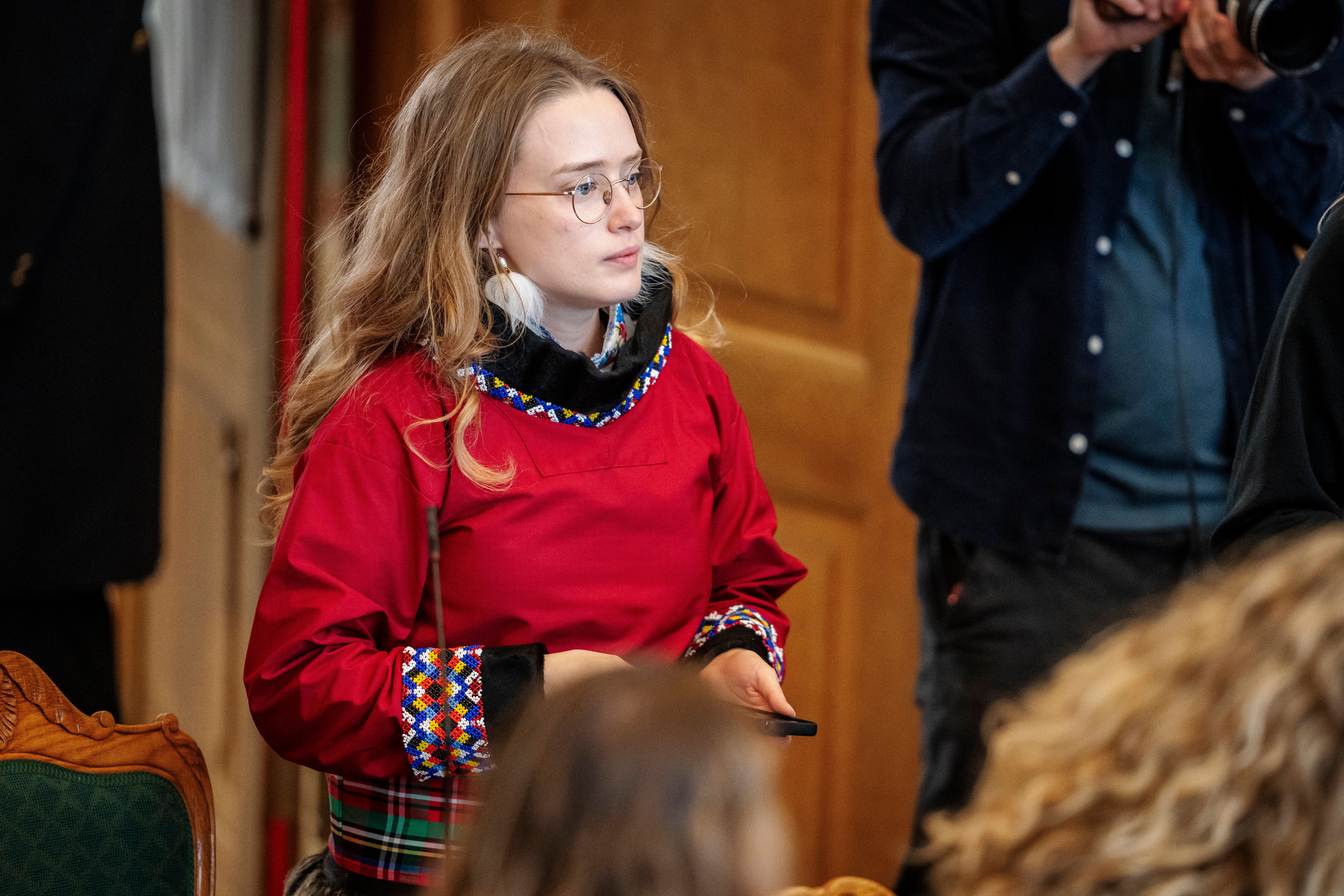Greenland Inuit stopped from addressing Danish Parliament amid native language row
Greenland was a colony under Denmark’s crown until 1953

Your support helps us to tell the story
From reproductive rights to climate change to Big Tech, The Independent is on the ground when the story is developing. Whether it's investigating the financials of Elon Musk's pro-Trump PAC or producing our latest documentary, 'The A Word', which shines a light on the American women fighting for reproductive rights, we know how important it is to parse out the facts from the messaging.
At such a critical moment in US history, we need reporters on the ground. Your donation allows us to keep sending journalists to speak to both sides of the story.
The Independent is trusted by Americans across the entire political spectrum. And unlike many other quality news outlets, we choose not to lock Americans out of our reporting and analysis with paywalls. We believe quality journalism should be available to everyone, paid for by those who can afford it.
Your support makes all the difference.A lawmaker representing Greenland in Denmark’s Parliament was told to leave the podium because she intended to speak only in Greenlandic — the Inuit language of the sparsely populated Arctic island — frustrating uncomprehending legislators and highlighting strained relations within the Danish Realm.
Aki-Matilda Hoegh-Dam, from the social democratic Siumut party, is at the center of a debate about whether lawmakers from Greenland and the Faeroe Islands can speak in their own tongues before the Danish parliament. The two semi-independent territories that are part of the Danish Realm, each hold two seats in the Folketing in Copenhagen.
During a traditional debate day Thursday, where parties’ political affairs spokespeople explain their party’s line, Hoegh-Dam stepped up to the podium and said she would only speak in the official language of Greenland. She had beforehand distributed a translation of her speech to the members of the assembly.
Parliament Speaker Søren Gade told her that “one cannot debate a speech ... if the speech is not also delivered in Danish” and asked her to step down. He added that she had been informed last year that Greenlandic and Faeroese lawmakers can speak in their local tongues if they themselves translate it into Danish immediately afterward. Hoegh-Dam said she had no intention of doing that.

Danish, which is taught in Greenland's schools, is the language in the Copenhagen assembly. Hoegh-Dam demands simultaneous interpretation. Gade has said that the Folketing is not geared for that but Greenlandic and Faeroese lawmakers can get extra funds to hire translators.
The other Greenland lawmaker in Denmark — Aaja Chemnitz of the left-leaning Inuit Ataqatigiit — spoke in Danish Thursday evening. Later, her party said it backed Hoegh-Dam's stance.
Greenland was a colony under Denmark’s crown until 1953, when it became a province in the Scandinavian country. In 1979, the island was granted home rule, and 30 years later Greenland became a self-governing entity. But Denmark retains control over justice, foreign and defense affairs. However, relations have been tense between the two. including because of revelations of misconduct by Danish authorities in Greenland during the 20th century.
A movement for the vast island’s independence has intensified over the past two decades. Greenland, which has a population of some 57,000 and whose main export is fish, still relies heavily on Denmark for annual financial support, which is budgeted to be 4 billion kroner (nearly $600 million) in 2024.